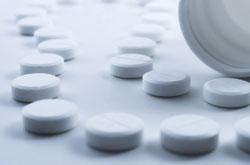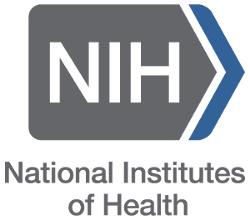 Probiotic bacteria are living organisms normally found in the intestines of healthy people. They are keys to maintaining a healthy immune system and overall health. Having healthy, stable gut flora makes people less prone to certain diseases, and increasingly, research shows that it has much to do with our overall health. Critically, when our bodies are colonized with these healthy bacteria, we are able to develop a healthy immune system which is vital to the prevention and treatment of allergies.
Probiotic bacteria are living organisms normally found in the intestines of healthy people. They are keys to maintaining a healthy immune system and overall health. Having healthy, stable gut flora makes people less prone to certain diseases, and increasingly, research shows that it has much to do with our overall health. Critically, when our bodies are colonized with these healthy bacteria, we are able to develop a healthy immune system which is vital to the prevention and treatment of allergies.
According to Body Ecology.com, probiotics have several positive effects on the body: They improve the function of the mucosal lining of the intestines; they hinder the growth of pathogenic bacteria; they stimulate the production of immune enhancing substances; and they enhance the overall immune response.
Probiotic organisms act like microscopic defenders against invading organisms by creating a barrier that prevents harmful bacteria and viruses from multiplying in the body. By changing the acidic environment in the intestines, they also create a less favorable environment for harmful organisms to develop.
Probiotics also help break down food for digestion, produce the lactase enzyme which helps to digest lactose, and produce vitamins in the intestinal tract, as outlined on WebMD.com. Their positive impact on intestinal health makes probiotics a noteworthy contributor to the overall health of the immune system.
These are just a couple examples of how recent research has been highlighting the increasingly important link between the microbes on and in our bodies and their impact on our health.
The immune system’s health is integral to the experience of the allergy sufferer. Allergies are misguided reactions of the immune system in response to (what should be harmless) particles. Since probiotics promote the health of the immune system, the relationship between probiotics and allergies is an increasingly interesting and important area of research.
The Hygiene Hypothesis
As crucial as probiotics are, a lack of these beneficial organisms causes problems. But, what causes a shortage of probiotics? One simple and straightforward reason people lack these healthy bacteria is taking a course of antibiotics. Antibiotics don’t distinguish between good and bad bacteria and may eliminate much of the healthy flora in the intestines while wiping out an infection. Therefore, it is important to take probiotic supplements after finishing a course of antibiotics in order to replenish the healthy bacteria and boost your immune system.
 Whether you’ve ever taken antibiotics or not, all those in the developed areas of the world are susceptible to what is known as the “hygiene hypothesis.” The hygiene hypothesis developed as the medical community realized that people in the modern Western world have far more allergies than people in the rest of the world. The basic idea is that our attentiveness to germs and bacteria has created a world that is, ironically, too clean. This has fostered an environment that seems to cultivate the prolific development of allergies.
Whether you’ve ever taken antibiotics or not, all those in the developed areas of the world are susceptible to what is known as the “hygiene hypothesis.” The hygiene hypothesis developed as the medical community realized that people in the modern Western world have far more allergies than people in the rest of the world. The basic idea is that our attentiveness to germs and bacteria has created a world that is, ironically, too clean. This has fostered an environment that seems to cultivate the prolific development of allergies.
Of course, scientists agree that there is a genetic component to allergies. However, this does not suffice to explain the continuous rise of allergy sufferers. Smaller family sizes, vaccinations, antimicrobial medication, generally improved hygiene, antibacterial soap and hand gel, and almost sterile food have greatly reduced our exposure to microbes. Researchers believe that this decrease in exposure is directly correlated to the increase of allergies. While the “hygiene hypothesis” isn’t a proven fact, and some studies have shown this theory has some holes, the links between eliminating certain types of bacteria and fungi from our skin and digestive system is solidly supported by research.
Probiotics and Allergies
By eradicating so much of our contact with these germs, the theory holds that there are two main negative consequences: First, our bodies have not had the chance to develop antibodies that would be natural resistance to common allergens. This leaves people susceptible to reactions (or overreactions) to allergens that they should have built up tolerance to.
Secondly, not only have our immune systems not had the opportunity to develop antibodies, but they have been severely unemployed. Researchers believe that since our immune systems are designed to be active, when they aren’t busy fighting off diseases or bacteria-ridden food, they begin to attack much less serious offenders. For example, pollen and dander are attacked creating the chain of reactions that we know as allergies. In other words, the lack of contact with bacteria has left the immune system abnormally idle, leading to malfunctions like allergic reactions. This is discussed in an ABC News article called Taking Probiotics Could Prevent Allergies. These allergies can range from mild irritation to severe chronic conditions.
Furthermore, it not only is the consumption of clean food that reduces the amount of bacteria we are exposed to that affects what bacteria we have in our gut, but also the type of food matters. As reported in Fox News in Could Gut Germs Underlie Western Allergies?”, researchers are finding that the consumption of sugar, animal fat, and calorie-dense foods in industrialized countries also greatly limits the adaptive potential of beneficial microbes. According to a study done comparing the germs living in the guts of children in Italy and in the children of a remote village in Burkina Faso, a lack of intestinal bacteria seems to significantly contribute to the higher rates of allergies found in wealthier, industrialized countries.
 The NIH also reports on a studies involving children in Burkina Faso, breastfed up to age two and raised on a diet rich in whole grains, legumes, and vegetables with very little meat, who had much more bacteria in their guts (for example, many bacteria that help to break down fiber). These microbes were lacking in the European children, who had a less diverse and more processed diet. The research team in this case concluded that a “reduction in microbial richness is possibly one of the undesirable effects of globalization and of eating generic, nutrient-rich, uncontaminated foods.” This “reduction in microbial richness” through a Western diet of limited, processed, and sterile food greatly contributes to a varied growth of healthy gut bacteria.
The NIH also reports on a studies involving children in Burkina Faso, breastfed up to age two and raised on a diet rich in whole grains, legumes, and vegetables with very little meat, who had much more bacteria in their guts (for example, many bacteria that help to break down fiber). These microbes were lacking in the European children, who had a less diverse and more processed diet. The research team in this case concluded that a “reduction in microbial richness is possibly one of the undesirable effects of globalization and of eating generic, nutrient-rich, uncontaminated foods.” This “reduction in microbial richness” through a Western diet of limited, processed, and sterile food greatly contributes to a varied growth of healthy gut bacteria.
This decreased biodiversity of organisms helps to explain our much higher incidence of allergies. Improved sanitation, vaccines, and cleaner food may have greatly reduced and eliminated infectious diseases in developed countries, but our consequent lack of exposure to bacteria has created the opportunity for other ailments to arise.
Probiotics and the Development of Allergies
While we may not have had the chance to develop many healthy bacteria and antibodies in our intestines, promising research is discovering the benefits of taking probiotic supplements.
In a research project in Norway called the “Prevention of Allergy Among Children in Trondheim,” researchers compared mothers who drank one glass of probiotic milk a day to women who were given a placebo. The mothers began drinking the milk beginning at week 36 in their pregnancy and continued up to three months after giving birth. The result, reported by Science Daily in Probiotics Use in Mothers Limits Eczema in Their Babies, Study Finds a decrease of the occurrence of eczema in their children by 40 percent up to the age of two.
A similar study led by Finnish researchers also concluded that exposing pregnant mothers and infants to probiotic bacteria could be beneficial to the immune system. The team found that by stimulating the growth of the immune system, probiotics could play a role in preventing allergies.
In this study, a group of women began taking probiotics daily while another group had placebo doses starting from their eighth month of pregnancy until six months after delivery. The team found that the levels of key proteins associated with tissue inflammation were on average 50 percent higher in the blood of infants treated with probiotics.
Since inflammation is thought to stimulate the immune system, it is believed to subsequently help reduce allergic reaction. According to ABC News in Taking Probiotics Could Prevent Allergies, the probiotic-treated infants were also 30 percent less likely to develop atopic eczema, a common indication of the early manifestation of allergies. The researchers concluded that “it seems clear that we need to stimulate the infant’s immune system as early and as vigorously as is safe, for inflammation seems to go hand in hand with allergy prevention.”
This research and other information suggest that infants need to be exposed to microbes early in their lives to stimulate their immune systems in order to learn how to properly function (that is, attack harmful microorganisms instead of attacking inoffensive elements). Without proper and sufficient exposure, immune systems begin to overreact and attack what should be harmless food and environmental substances. However, as several studies have shown, probiotics can come in and provide the stimulation that young and undeveloped immune systems need to become healthy and strong, thus suggesting a very strong correlation between probiotics for allergies.
How to Take Probiotics
 Since probiotics clearly offer gastrointestinal and immune system health benefits, taking probiotics is a good idea. However, it is important to know how to take probiotic bacteria and how much to take.
Since probiotics clearly offer gastrointestinal and immune system health benefits, taking probiotics is a good idea. However, it is important to know how to take probiotic bacteria and how much to take.
The number of probiotic bacteria in our gut may number up to whopping 100 trillion. It makes sense, therefore, that for the dose to be effective, you ingest at least a certain minimum amount of probiotic bacteria. Some say that this should be 10 million colony-forming units per gram. Obviously, the bacteria should be safe for human consumption, and should also be resistant to upper GI conditions, able to adhere to gut linings, stimulate healthy bacteria, and suppress harmful bacteria. Probiotics should also be taken daily to have recognizable effects.
Probiotics are found in different forms. Several foods have had probiotics added to promote digestive benefits. These include fermented dairy products such as yogurt, cheese, and kefir. They also may be found in miso, tempeh (fermented soybeans), granola bars, dried cereals, and drinks – some juices, soy beverages, and powdered drinks.
Probiotics can also be found as dietary supplements in capsules, tablets, and powders. Take care when purchasing probiotics, as their concentration levels can vary greatly and can contain many different strains. Different strains are helpful for various things. For example, L. acidophilus has shown to be helpful for antibiotic-associated diarrhea, while B. infantis may benefit irritable bowel syndrome. Also look for probiotics that are alive when taken. Try to check whether or not the products have been clinically tested to ensure their effectiveness in humans.
So, what’s the take away from probiotics and allergies? There are many reasons why you should take probiotics, taking probiotics is easy, and the benefits they confer on intestinal and immune health are significant. For those with allergies, improving the immune system can have profound effects on slowing the development or lessening the severity of allergic reactions.
If you found Probiotics and Allergies useful, check out a few of these articles related to this topic.
✔ The Atopic March & Probiotics
✔ Foods That Fight Allergies or Aggravate Them
✔ Treat Eczema With Omega 3s
✔ Nutrition for Allergy Sufferers
✔ Genetically Modified Food
✔ Treat Food Allergies with Herbs & Supplements
